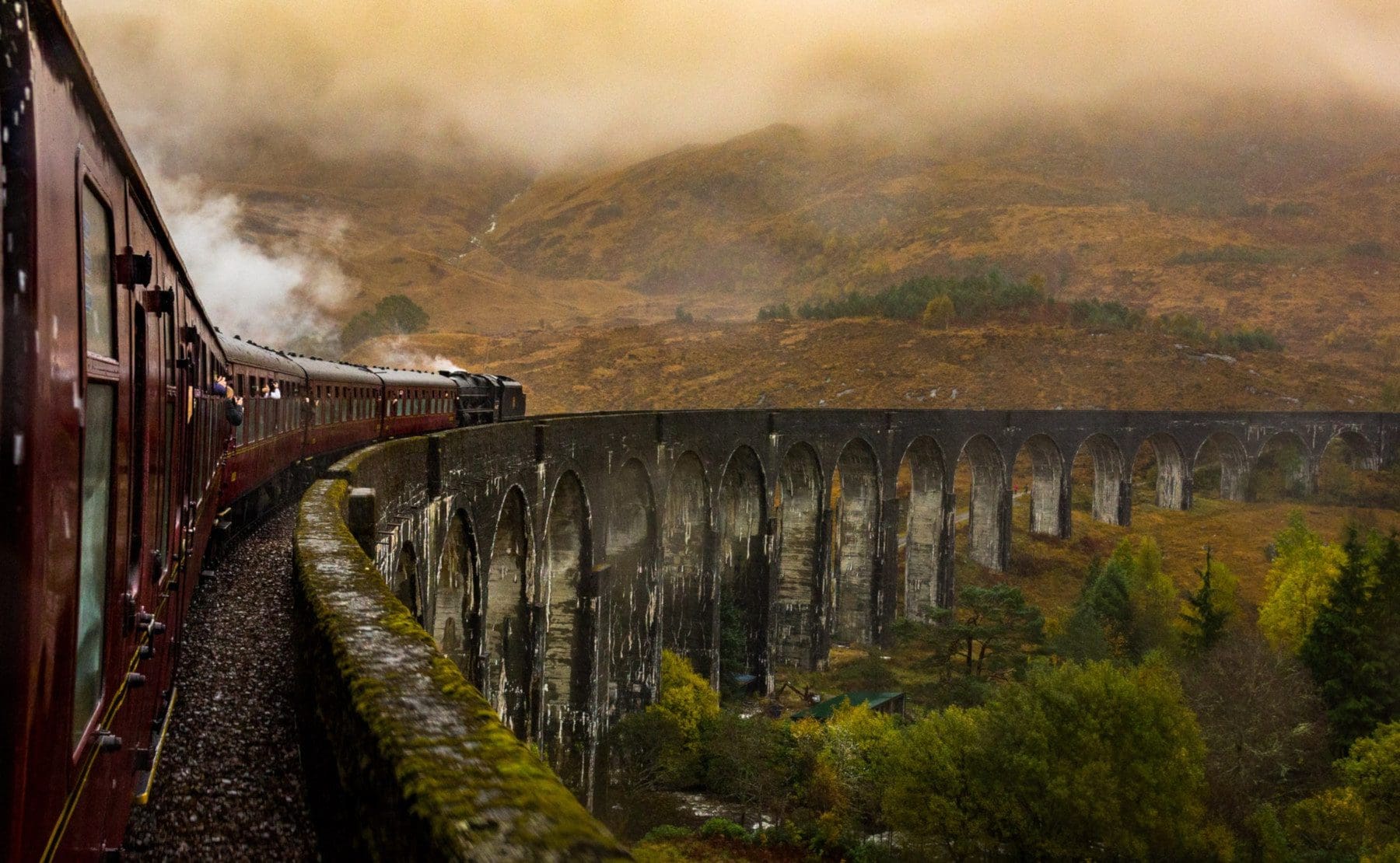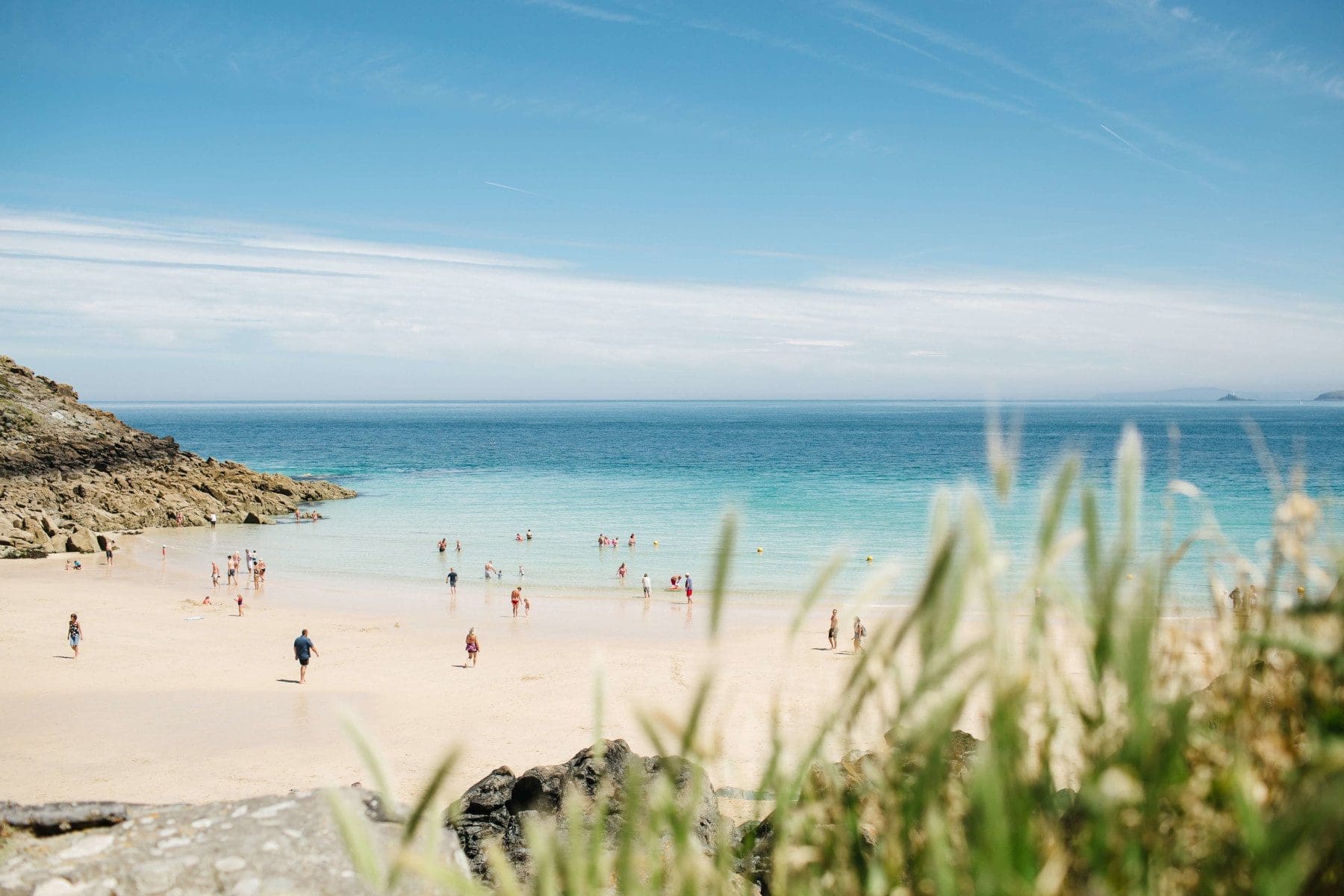To mark Earth Day, Mark Bibby Jackson chats with Cat Jones, the Founder of Byway, the travel company that is firmly putting slow travel on the map.
You opened Byway in the lockdown, what was the thinking behind this?
I’ve always been a slow traveller. I’ve never owned a car and love travelling by bike, bus and train, stopping in locally run places and really getting to know a place. When Boris announced the first lockdown, I knew travel was never going to be the same again. Momentum for sustainable travel and ‘shop local’ had been growing beforehand, but my bet was that lockdown was going to highlight the importance of both more than ever before (which of course, it did). It felt like a really important time to create a slow, sustainable travel company – and specifically the technology that could help slow travel scale on the other side. I resigned from my job the next day.
How has it gone so far?
Brilliantly! We’ve had such an outpouring of support from customers, investors, journalists and supporters. There have been a lot of hurdles to deal with in the travel industry in the past two years, but the fact that we were founded in lockdown meant we could design the business from day one to be resilient to quieter booking periods and respond to changes quickly. Thanks to this nimble approach we now have over 100 five-star reviews on TrustPilot, and so many people have been able to discover the joys of flight-free travel.
Can you explain a bit about how Byway works?
Byway is the world’s first dynamic slow travel packaging technology. It personalises routes based on customer’s inputs (interests, dates, regions, dietary requirements etc) and then plans the route based on the accommodation and ground transport available. While other route planners optimise for speed, ours optimises for enjoyment. Its itineraries prioritise picturesque routes, off the beaten path stop-offs and super enjoyable journeys by train and boat – even if they take longer than the fastest direct route. Our team often work with our customers to further tweak itineraries the tech has suggested. Basically, we take all the planning and hassle out of flight free holidays. We create itineraries, book all travel and accommodation, suggest en route activities and eateries throughout, and offer on-demand WhatsApp support the whole time our customers are away. We offer one price for the whole holiday, financially protected through our ABTA bond, with free disruption re-planning and a Covid refund guarantee.

To you, what is slow travel?
It’s a mindset. It’s getting to know a place and a region: travelling through, not flying over; stopping off in different places; staying with locally owned accommodation; eating local food, meeting local people – taking the time to experience a place as it really is. Quality over speed. It’s also about the benefits it brings the destinations by keeping tourism spend in the community, bringing travellers (and their money) to places and regions that welcome them and diverting away from over-touristed locations.
Why do you oppose air travel?
We’ve worked hard to build adventures that don’t rely on flights, and we stand by the principle that travelling through the world is better than flying over it.
Rail travel accounts for just 14g of CO2 per passenger mile, dwarfed by the 285g generated by air travel (Energy Saving Trust, 2018). You could get the train from London to Edinburgh and back five times and your carbon footprint would still be lower than if you flew there. Plus, there’s a joyfulness to grounded travel that I genuinely believe makes for a richer and more gorgeous experience.
What do you say to people who say that they would love to travel by train but they 1) don’t have the time and 2) can’t afford it.
It’s easy to feel like you don’t have time to spend on travel if you see the travel as a means of getting to a holiday. But if you see the travel as the holiday itself – a holiday that starts when you step out of your door and is scattered with amazing journeys and fabulous stops and overnights, the issue disappears. If you only have a few days, Scotland, England and Wales are amazing, and France and Ireland are close too.
It’s definitely true that rail travel is more expensive than we’d all like, especially when government subsidies are given to air travel over rail. We’re campaigning to change that – our mission is to make slow travel accessible to all, and that will require policy shifts. In the meantime, if budgets are tight, any journey you can take by train makes a difference, even if you can’t do everything that way. It’s not about stopping flying completely, but helping everyone fly less – and enjoy the experience more. Don’t forget what fabulous experiences we have on our doorstep right here in the UK, as well.
 Taking the train is part of slow travel
Taking the train is part of slow travelYou have produced a climate action plan, can you explain more about this?
Here is a link to our sustainability report, although it’s getting updated shortly as we’ll release our 2021/22 report in the next few days. We have three goals:
- Reduce the climate impact of leisure travel by making flight-free holidays mainstream
- Boost local economies and facilitate environmental recovery by drawing tourists away from hubs suffering over-tourism to the wonderful places in between
- Increase the proportion of tourist spend on sustainable products and services by prioritising partnerships with sustainable businesses.
I read that you plan to give areas that are experiencing over-tourism room to regenerate, what do you mean by this?
We’re working with local destination marketing organisations to highlight lesser known locations that are looking to increase their tourism industry. We have also codified over-touristed places in our technology, so our itinerary-creation tech penalises hotspots and favours regenerative tourism.
What is your view of low season travel?
Venturing off the beaten path also means enjoying the benefits of edge and low seasons. People want to travel at many times of the year and it’s our job to make sure we have superb slow travel trips for every occasion. Some places that are clearly hotspots to avoid in the summer aren’t so in low season, so the shape of itineraries at Byway changes just as the seasons do.
For people looking to lower their carbon footprint while travelling what would be your advice?
Here’s a blogpost you can pull from.
So far Byway operates only in UK and Europe – do you have plans to expand to other regions?
We have pretty big goals, so yes, eventually, but right now we are happily delivering superb slow travel in the UK and Europe.
You have signed the Glasgow Declaration and Declared a Climate Emergency, how important do you feel it is for the sector to work together to address the impact of climate change?
Hugely important. By joining together, all sorts of players in the industry, can share best practices and collaborate to adopt. We love being part of these communities to be open book about experiments and practices, and to learn from and be challenged by those of others.
Currently, the aviation industry receives £7 billion per year in subsidies in the UK, while train prices remain a significant barrier for many in opting for flight-free alternatives. In order to make the required impact on emissions, we need to see these subsidies being divested into train travel. With greater unity and mobilisation of the tourism industry as seen in the Glasgow Declaration on Climate Action in Tourism unveiled at COP26, it is our hope that we see policy changes that make sustainable travel viable for more people.
 Cornwall is a popular UK destination
Cornwall is a popular UK destinationWhat do you say to people who want to visit places further way than Europe, such as the Seychelles, Australia etc where realistically flight is the only travel option?
We’re not trying to stop people travelling, but to offer a superb, climate-friendly alternative to long haul that makes slow travel easier and more enjoyable. There are so many wonderful places to explore around the UK and Europe that might not be in travel magazines or on social media, and our technology helps make them easier to discover and explore. Replacing short haul flights with grounded options is the sweet spot for climate impact, and that’s where we’re focused. Americans and even Australians have been buying our holidays, often when in the UK to see family. If you have to continent hop, travel flight free when you get there. The earth will thank you for it.
What are you future plans for 2022 and beyond?
Our mission is to make slow travel holidays mainstream. All the work we’re doing is to make slow travel available to all. We’re currently expanding our offering into more European destinations and are excited to be able to offer trips to more countries. We’re also bringing Byway to booking partners, event companies, travel agencies and even other holiday companies, to help them offer slower and flight free travel to their customers. Alongside this, we’re for hiring a lot of roles and expanding our marketing efforts to help people consider slow travel for their next holiday.
Today is Earth Day – what do you want people to do to celebrate the day?
Whatever makes them happy. Climate doom can cause inaction so we want to make sure people enjoy exploring all the ways they can champion and support the fight against climate change. We want people to love the journey – that also means a journey to a healthier planet.